- Home
- Nora Roberts
Time Was Page 4
Time Was Read online
Page 4
He was unarguably in the twentieth century.
His stomach clenched. Ignoring the sudden buzzing in his ears, he bent to snatch up the paper. Words danced in front of his eyes. Something about arms talks—nuclear arms, he noted with a kind of dull horror—and hail damage in the Midwest. There was a tease about the Mariners trouncing the Braves. Very slowly, knowing his legs would give out in a moment, he lowered himself back into the chair.
It was too bad, he thought dully. It was too damn bad, but it wasn’t Libby Stone who was going crazy.
“Caleb?” The moment she saw his face, Libby rushed into the room with brandy sloshing in a snifter. “You’re white as a sheet.”
“It’s nothing.” He had to be careful now, very careful. “I guess I stood up too fast.”
“I think you really could use some of this.” She held the snifter until she was certain he had both hands on it. “Take it slow,” she began, but he’d already drained it. Sitting back on her heels, she frowned at him. “That should cure you or knock you out again.”
The brandy was the genuine article and no hallucination, he decided. It was velvet fire coursing down his throat. He closed his eyes and let the fire spread. “I’m still a little disoriented. How long have I been here?”
“Since last night.” The color was coming back, she noted. His voice sounded calmer, more controlled. It wasn’t until her muscles relaxed that she realized how tightly they’d been tensed. “I guess I saw you crash about midnight.”
“You saw it?”
“Well, I saw the lights and heard you hit.” She smiled, continuing to monitor his pulse, when he opened his eyes again. “For a minute I thought I was seeing a meteor or a UFO or something.”
“A—a UFO?” he repeated, dazed.
“Not that I believe in extraterrestrials or spaceships or anything, but my father’s always been fascinated by that kind of thing. I realized it was a plane.” He was staring at her again, she thought, but there was curiosity rather than anger in his eyes. “Feeling better?”
He couldn’t have begun to tell her how and what he was feeling. Cal had an idea that that was all for the best. He needed to think before he said too much. “Some.” Still hoping it was all some bizarre mistake, he rattled the paper in his hand. “Where’d you get this?”
“I drove into Brookings a couple of days ago. That’s about seventy miles from here. I picked up supplies and a few newspapers.” She glanced absently at the one in his hand. “I haven’t gotten around to reading any of them yet, so they’re already old news.”
“Yeah.” He looked at the papers that were still on the floor. “Old news.”
With a laugh, she rose and began to make an effort to tidy the room. “I always feel so cut off here, more so than when I’m in the field hundreds of miles away. I imagine we could establish a colony on Mars and I wouldn’t hear about it until it was all over.”
“A colony on Mars,” he murmured, feeling his stomach sink as he glanced at the paper again. “I think you’ve got about a hundred years to go.”
“Sorry I’ll miss it.” With a sigh, she looked out the window. “Rain’s starting up again. Maybe we can catch the weather on the early news.” After stepping over books, she flicked on a small portable television. After a moment, a snowy picture blinked on. She dragged a hand through her hair and decided to watch without her glasses. “The weather should be on in a—Caleb?” She tilted her head to one side, fascinated by his dumbstruck expression. “I’d swear you’d never seen a television in your life.”
“What?” He brought himself back, wishing he had another brandy. A television. He’d heard of them, of course, in the same way Libby had heard of covered wagons. “I didn’t realize you had one.”
“We’re rustic,” she told him, “not primitive.” She narrowed her eyes when he gave a choked laugh. “Maybe you should lie down again.”
“Yeah.” And when he woke up again, this would all have been a dream. “Mind if I take these papers?”
She stood to help him up. “I don’t know if you should be reading.”
“I think that’s the least of my worries.” He discovered that the room didn’t spin this time, but it was still a comfort to drape his arm around her shoulders. Strong shoulders, he thought. And a soft scent. “Libby, if I wake up and find out this has all been an illusion, I want you to know you’ve been the best part of it.”
“That’s nice.”
“I mean it.” The brandy and his own weakened system were taking over. Because his mind felt as if it had been fried in a solar blast, he didn’t fight it. She had little trouble easing him into bed. But his arm stayed around her shoulders long enough to keep her close, just close enough to brush his lips over hers. “The very best.”
She jerked back like a spring. He was asleep, and her blood was pounding.
***
Who was Caleb Hornblower? The question interrupted Libby’s work throughout the evening. Her interest in the Kolbari Islanders didn’t even come close to her growing fascination with her unexpected and confusing guest.
Who was he, and what was she going to do about him? The trouble was, she had a whole list of unanswered questions that applied to her odd patient, Caleb Hornblower. Libby was a great listmaker, and a woman who knew herself well enough to be aware that all her organizational talents were eaten up by her work.
Who was he? Why had he been flying through a storm at midnight? Where did he come from and where had he been going? Why had a simple paperback novel sent him into a panic? Why had he kissed her?
Libby pulled herself up short there. That particular question wasn’t important—it wasn’t even relevant. He hadn’t really kissed her, she reminded herself. And whether he had or hadn’t wasn’t the issue. It was gratitude, she decided, and began to nibble on her thumbnail. He’d only been trying to show her that he was grateful to her. Libby certainly understood that a kiss was—could be—a very casual gesture. It was part of Western culture. Over the centuries it had become as unimportant as a smile or a handshake. It was a sign of friendship, affection, sympathy, gratitude. And desire. She bit down harder on her nail.
Not all societies used the kiss, of course. Many tribal cultures . . . She was lecturing again, Libby thought in disgust. She looked down at her hands. And she was biting her nails. That was a bad sign.
What she needed was to get her mind off Hornblower for a while and fill her stomach. Pressing a hand to it, Libby rose. She wasn’t going to get any work done this way, so she might as well eat.
Since Caleb’s room was dark, she passed it by, telling herself she’d check on him when she came back up. Sleep was undoubtedly more essential to his recovery than another meal.
There was a low rumble of thunder as she descended the stairs. Another bad sign, she thought. At this rate it would be days before she could get him down the mountain.
Perhaps someone was already looking for him. Friends, family, business associates. A wife or a lover. Everyone had someone.
She groped for the kitchen light as the sky cracked with the first bolt of lightning. It was going to be another boomer, she decided as she opened the refrigerator door. Finding nothing that appealed to her, she rummaged through the cupboards. A night like this called for a nice bowl of soup and a seat by the fire.
Alone.
She sighed a little as she opened the can. Recently she’d begun to think about being alone. As a scientist she knew the reason. She lived in a culture of couples. Single—unmatched, she remembered with a quick smile—single men and women often found themselves dissatisfied and depressed in their own company. The entertainment media subtly—and not so subtly—drilled into them the pleasures of relationships. Families added pressure for the single to marry and continue the family line. Good-natured friends offered help and advice, generally unwanted, on finding a mate. The hum
an being was programmed, almost from birth, to search for and find a companion of the opposite sex.
Maybe that was why she’d resisted. An interesting analysis, Libby mused as she stirred the soup. The desire for individuality and self-sufficiency had been ingrained in her from birth. It would take a very special person to tempt her to share. She had dated only rarely in high school. The same pattern had held true in college. She’d had no interest.
That wasn’t precisely true, she thought. She had had interest—the trouble was, it had usually been scientific. She’d never met a man who dazzled her enough to stop her from making lists and forming hypotheses. Professor Stone, they’d called her in high school. And it still rankled. In college she’d been considered a professional virgin. She’d detested that, had struggled to ignore it, pouring her energy into her studies. The appeal of her personality had made her friends, both male and female. But intimate relationships were another matter.
When all the data had been analyzed, there had never been one who had made her . . . well, yearn, Libby decided. That was the appropriate term.
She supposed there wasn’t a man on the planet who could make her yearn.
Wooden spoon in hand, she turned to take out a bowl. For the second time she saw Cal framed in the doorway. She gave a muffled shriek, and the spoon went flying. A flash of lightning lit up the room. Then it was plunged into darkness.
“Libby?”
“Damn it, Hornblower, I wish you wouldn’t do that.” Her voice was breathless as she rummaged through drawers for a candle. “You scared the life out of me.”
“Did you think I was one of the mutants from Andromeda?” There was a dry tone to the words that had her wrinkling her nose.
“I told you I don’t read that stuff.” She closed a drawer on her thumb, swore, then wrenched open another. “Where are the stupid matches?” She turned and bumped solidly into his chest in the dark. Lightning flashed again, illuminating his face. It took only that instant for her mouth to go dry. He’d looked stunning, strong and dangerous.
“You’re shaking.” His voice had gentled almost imperceptibly, but the hands on her shoulders stayed firm. “Are you really frightened?”
“No, I . . .” She wasn’t a woman to be scared of the dark. Certainly she wasn’t a woman to be afraid of a man—intellectually speaking. But she was shaking. The hands that had reached up to his bare chest trembled—and intellect had nothing to do with it. “I need to find the matches.”
“Why did you turn the lights off?” She smelled wonderful. In the cool, unrelieved darkness he could concentrate on her scent. It was light and almost sinfully feminine.
“I didn’t. The storm knocked out the power.” His fingers tightened on her arms, hard enough to make her gasp. “Caleb?”
“Cal.” Lightning flashed again, and she saw that his eyes had darkened. He was staring out the window into the storm now. “People call me Cal.”
His grip had eased. Though she ordered herself to relax, the crash of the thunder made her jolt. “I like Caleb,” she said, hoping her voice was pleasant and casual. “We’ll have to save it for special occasions. You have to let me go.”
He slid his hands down to her wrists, then back. “Why?”
Her mind went blank. Beneath her palms she could feel the strong, steady beating of his heart. Slowly his fingers skimmed down to her elbows, where his thumbs traced lazy, erotic circles on the sensitive inner skin. She could no longer see him, but she could taste the warm flutter of his breath on her parted lips.
“I . . .” She felt each separate muscle in her body go lax. “Don’t.” The word nearly strangled her as she jerked back. “I need to find the matches.”
“So you said.”
Leaning weakly against the counter, she began to search the drawer again. Even after she found a pack, it took her a full minute to light the match. Thoughtful, his hands plunged deep in the pockets of the sweats, Cal watched the little flame dance and flicker. She lit two tapers, keeping her back to him.
“I was heating soup. Would you like some?”
“All right.”
It helped to keep her hands busy. “You must be feeling better.”
His mouth twisted into a humorless smile when he thought of the hours he’d lain in the dark willing his memory to return completely. “I must be.”
“Headache?”
“Not much of one.”
She poured the water she’d already boiled for tea, then arranged everything meticulously on a tray. “I was going to sit by the fire.”
“Okay.” He picked up the two candles and led the way.
The storm helped, Cal thought. It made everything he was seeing, everything he was doing, seem that much more unreal. Perhaps by the time the rain stopped he’d know what he had to do.
“Did the storm wake you?”
“Yeah.” It wouldn’t be the last lie he told her. Though he was sorry for the necessity of it, Cal smiled and settled in a chair by the fire. There was something charming about being in a place where a simple rainstorm could leave you in the dark, dependent on candles and firelight. No computer could have set a better scene. “How long do you think it’ll be before you regain power?”
“An hour.” She tasted the soup. It nearly calmed her. “A day.” She laughed and shook her head. “Dad always talked about hooking up a generator, but it was one of those things he never got around to. When we were kids, we’d sometimes have to cook over the fire for days in the winter. And we’d sleep all curled up here on the floor while my parents took turns making sure the fire didn’t die out.”
“You liked it.” Cal knew people who went into preserved areas and camped. He’d always thought they were strange. But the way Libby spoke of it, it seemed homey.
“I loved it. I guess those first five years helped me handle the more primitive parts of digs and fieldwork.”
She was relaxed again. He could see it in her eyes, hear it in her voice. Though a nervous Libby held a definite appeal for him, he wanted her relaxed now. The more at ease she was, the more information he might glean.
“What era do you study?”
“No specific era. I’m hung up on tribal life, mainly isolated cultures and the effects of modern tools and machines. Things like how electricity changes the sociopolitical mores of the traditional man. I’ve toyed around with extinct cultures, Aztecs, Incas.” This was easy, she decided. The more she talked about her work, the less she would think about that jolting moment in the kitchen and her own inexplicable reaction to it. “I’m planning on going to Peru in the fall.”
“How’d you get started?”
“I think it was a trip to the Yucatan when I was a kid, and all those wonderful Mayan ruins. Have you ever been to Mexico?”
Looking back, he remembered a particularly wild night in Acapulco. “Yes. About ten years ago.” Or a couple of centuries from now, he thought, and frowned into his bowl.
“Bad time?”
“What? No. This tea . . .” He took another sip. “It’s familiar.”
Grinning, she tucked her legs up under her. “My father will be glad to hear that. Herbal Delight—that’s his company. He started it right here in this cabin.”
Cal looked down into his cup, then laid his head back and laughed. “I thought that was a myth.”
“No.” With a half smile forming, she studied him. “I don’t get the joke.”
“It’s hard to explain.” Should he tell her that over two centuries from now Herbal Delight would be one of the ten biggest and most powerful companies on Earth and its colonies? Should he tell her that it made not only tea but organic fuel and God knew what else? Here was Cal Hornblower, he thought, sitting cozily in a chair in the cabin where it all began. He noted that she was staring at him as if she were going to check his pulse again.
; “My mother used to give me this,” he told her. “When I had—” He wasn’t sure what childhood illness he could name, but he was certain it wasn’t red dust fever. “Whenever I wasn’t feeling well.”
“A cure for all ills. You’re remembering more.”
“Patches, pieces,” he said, still cautious. “It’s easier to remember childhood than last night.”
“I don’t think that’s unusual. Are you married?” Where had that come from? she wondered, and immediately turned her attention to the fire.
He was glad she wasn’t looking at him when the grin split his face. “No. It wouldn’t be wise for me to want you if I were.”
Her mouth dropped open, and she twisted around to look at him. Quickly she rose and began stacking the dishes on the tray. “I should take these back in.”
“Would you rather I didn’t tell you?”
She had to swallow once, hard, before she could speak at all. “Tell me what?”
“That I want you.” He closed his hand over her wrist to keep her still. It amazed and aroused him to feel her pulse hammering. His word-by-word perusal of the newspaper hadn’t given him an inkling of how men and women interacted in the here and now, but he didn’t believe it could be so different.
“Yes— No.”
Smiling, he took the tray out of her hands. “Which?”
“I don’t think it’s a good idea.” When he stood up, she stepped back and felt the heat from the fire on her legs. “Caleb . . .”
“Is this a special occasion?” He traced a fingertip across her jaw and watched her eyes go as hot as the flames behind her.
“Don’t.” It was ridiculous. He couldn’t make her tremble with just a touch. But all he had done was touch her. And she was trembling.
“When I woke up and saw you sleeping in the chair in the firelight I thought you were an illusion.” He rubbed his thumb gently over her bottom lip. “You look like one now.”

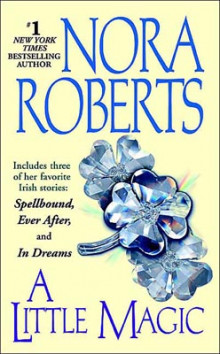 A Little Magic
A Little Magic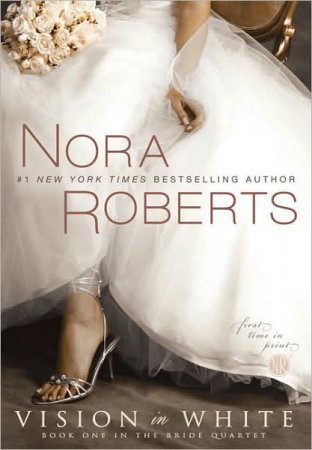 Vision in White
Vision in White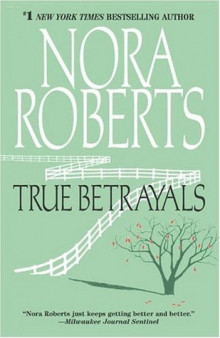 True Betrayals
True Betrayals The Next Always
The Next Always A Man for Amanda
A Man for Amanda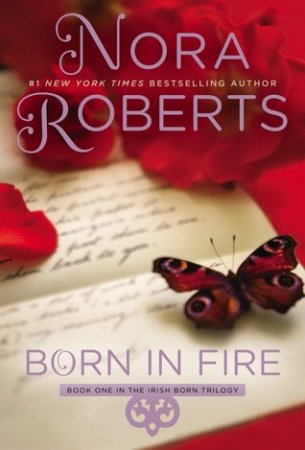 Born in Fire
Born in Fire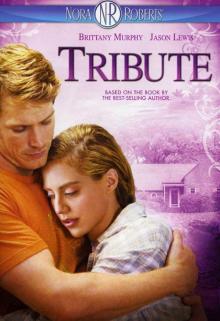 Tribute
Tribute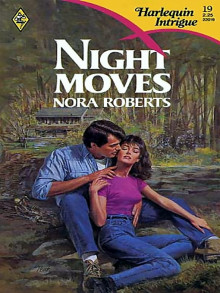 Night Moves
Night Moves Dance Upon the Air
Dance Upon the Air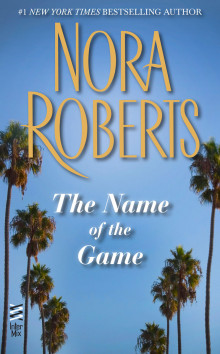 The Name of the Game
The Name of the Game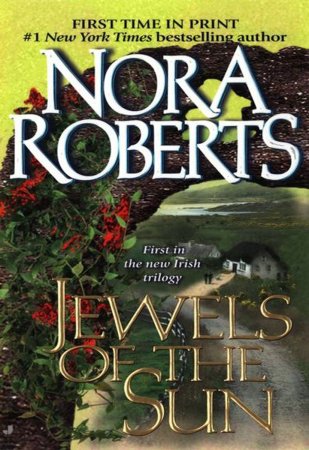 Jewels of the Sun
Jewels of the Sun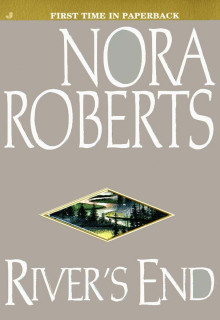 River's End
River's End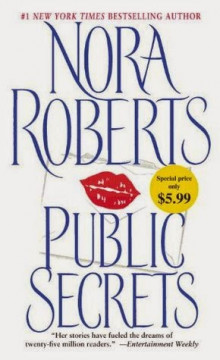 Public Secrets
Public Secrets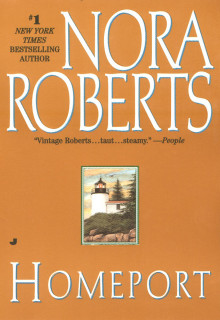 Homeport
Homeport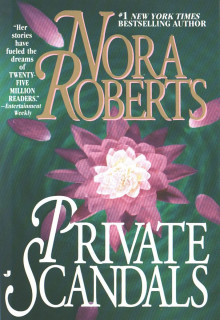 Private Scandals
Private Scandals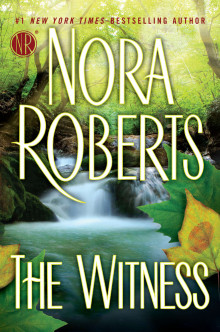 The Witness
The Witness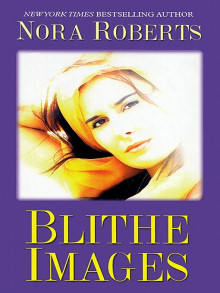 Blithe Images
Blithe Images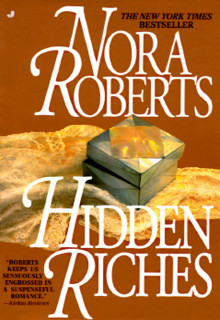 Hidden Riches
Hidden Riches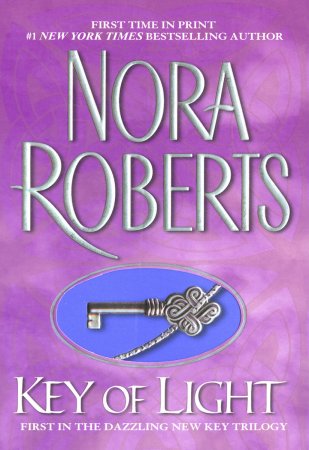 Key of Light
Key of Light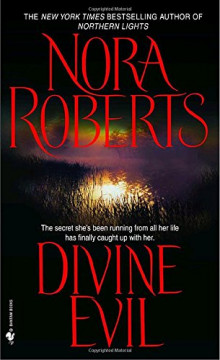 Divine Evil
Divine Evil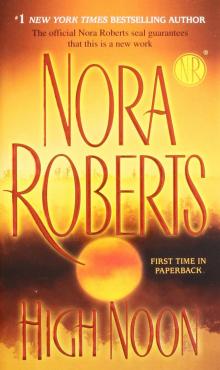 High Noon
High Noon Blue Dahlia
Blue Dahlia Sea Swept
Sea Swept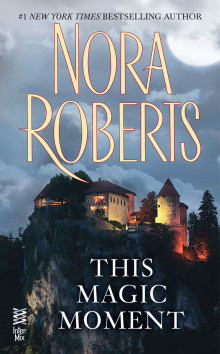 This Magic Moment
This Magic Moment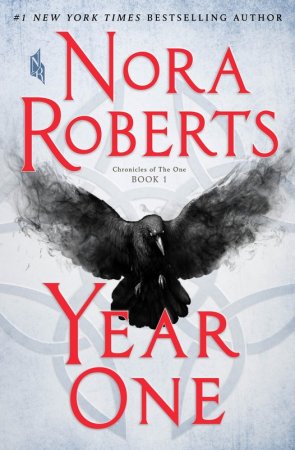 Year One
Year One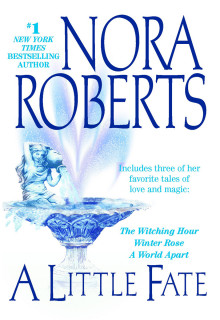 A Little Fate
A Little Fate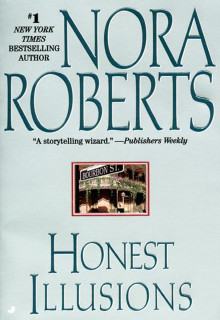 Honest Illusions
Honest Illusions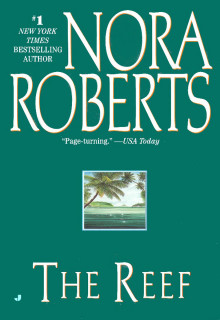 The Reef
The Reef Shelter in Place
Shelter in Place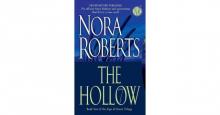 The Hollow
The Hollow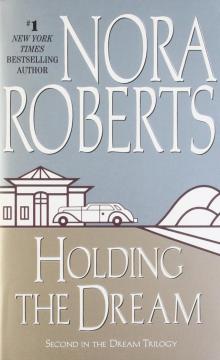 Holding the Dream
Holding the Dream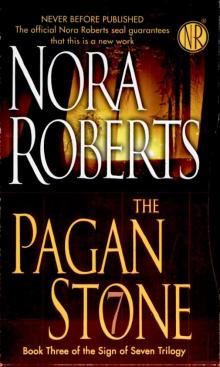 The Pagan Stone
The Pagan Stone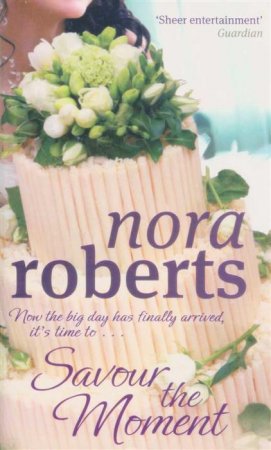 Savour the Moment
Savour the Moment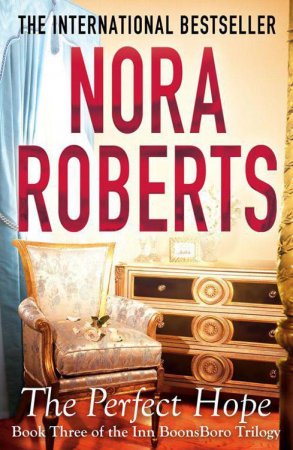 The Perfect Hope
The Perfect Hope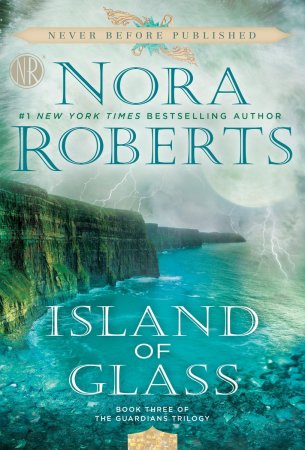 Island of Glass
Island of Glass Happy Ever After
Happy Ever After Bed of Roses
Bed of Roses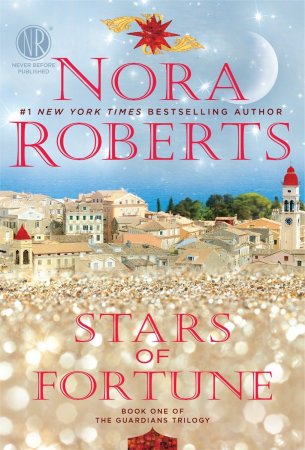 Stars of Fortune
Stars of Fortune Dark Witch
Dark Witch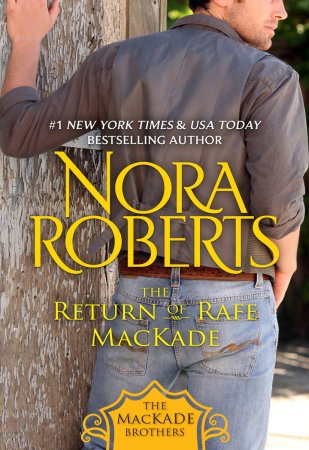 The Return of Rafe MacKade
The Return of Rafe MacKade Chesapeake Blue
Chesapeake Blue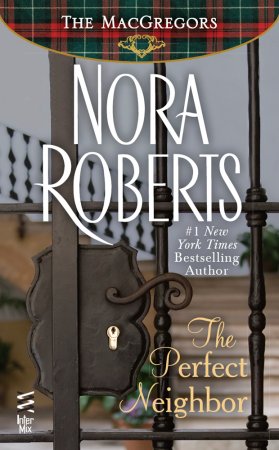 The Perfect Neighbor
The Perfect Neighbor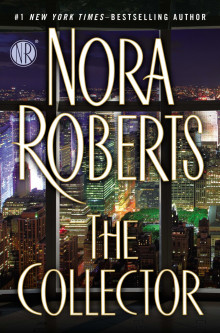 The Collector
The Collector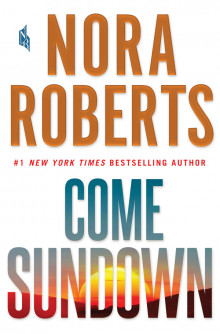 Come Sundown
Come Sundown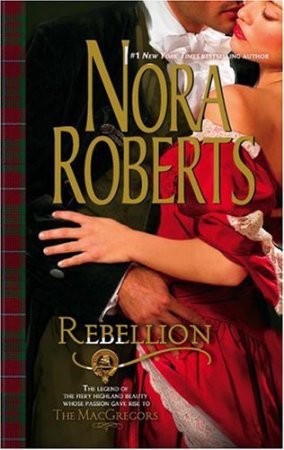 Rebellion
Rebellion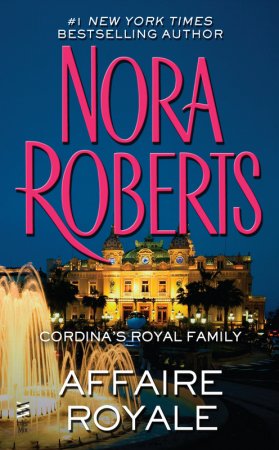 Affaire Royale
Affaire Royale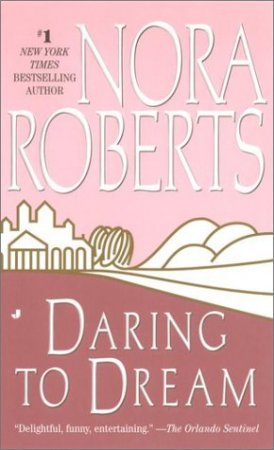 Daring to Dream
Daring to Dream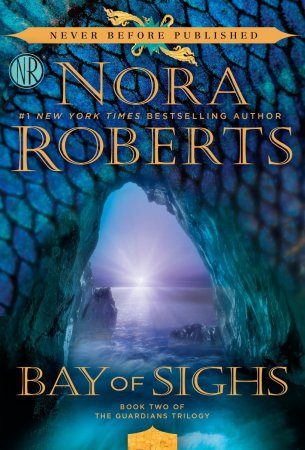 Bay of Sighs
Bay of Sighs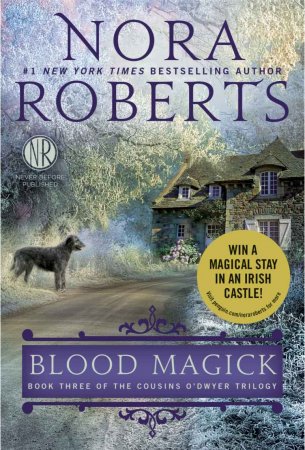 Blood Magick
Blood Magick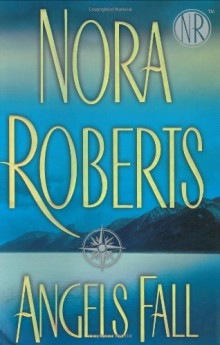 Angels Fall
Angels Fall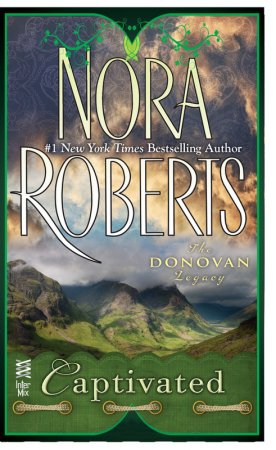 Captivated
Captivated The Last Boyfriend
The Last Boyfriend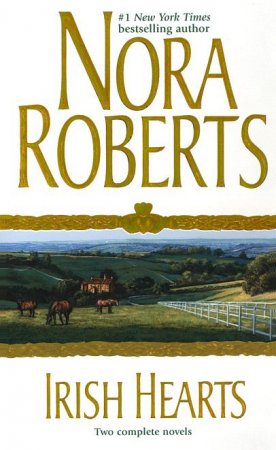 Irish Thoroughbred
Irish Thoroughbred Inner Harbor
Inner Harbor The Right Path
The Right Path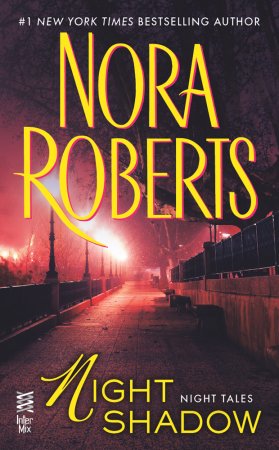 Night Shadow
Night Shadow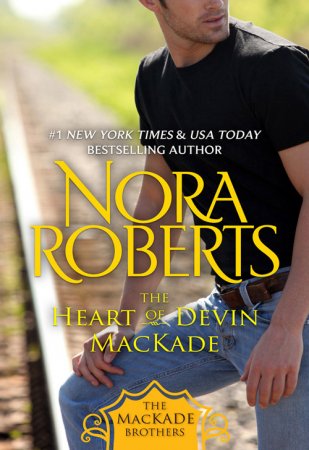 The Heart of Devin MacKade
The Heart of Devin MacKade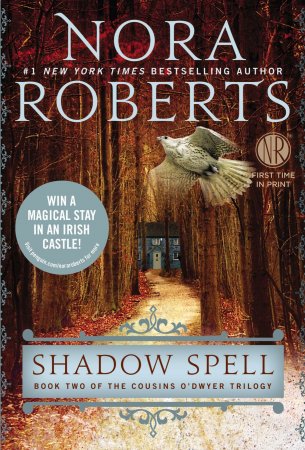 Shadow Spell
Shadow Spell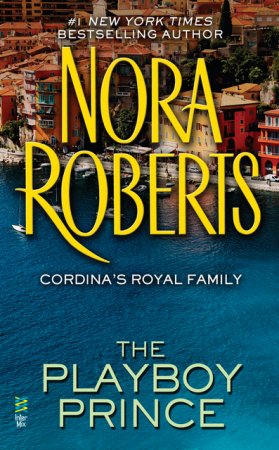 The Playboy Prince
The Playboy Prince The Fall of Shane MacKade
The Fall of Shane MacKade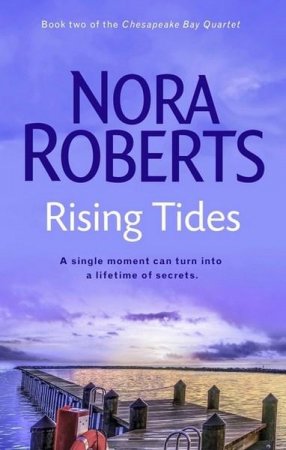 Rising Tides
Rising Tides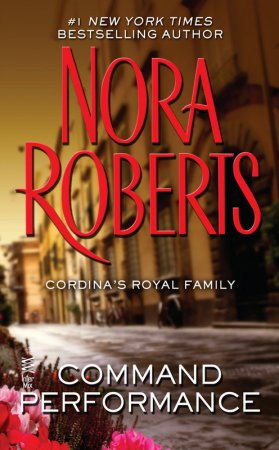 Command Performance
Command Performance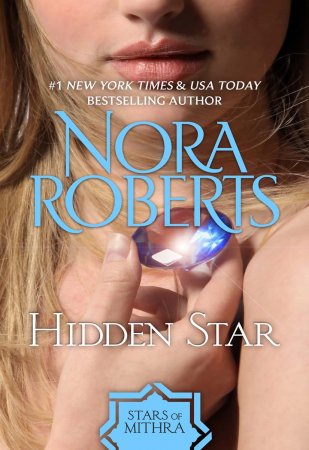 Hidden Star
Hidden Star Cordina's Crown Jewel
Cordina's Crown Jewel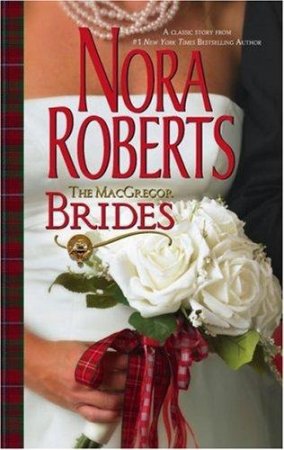 The MacGregor Brides
The MacGregor Brides The Pride of Jared MacKade
The Pride of Jared MacKade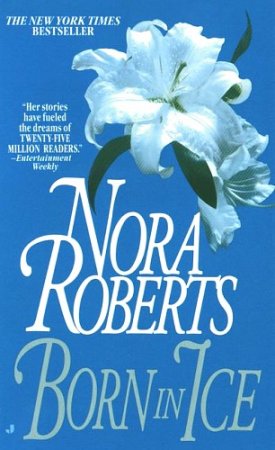 Born in Ice
Born in Ice Whiskey Beach
Whiskey Beach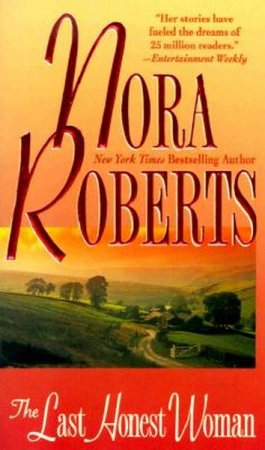 The Last Honest Woman
The Last Honest Woman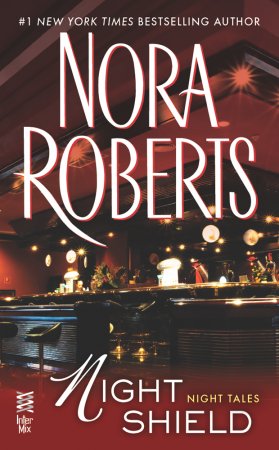 Night Shield
Night Shield Born in Shame
Born in Shame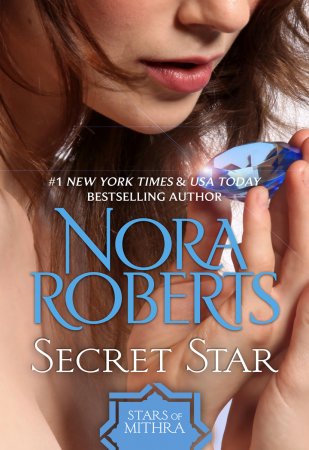 Secret Star
Secret Star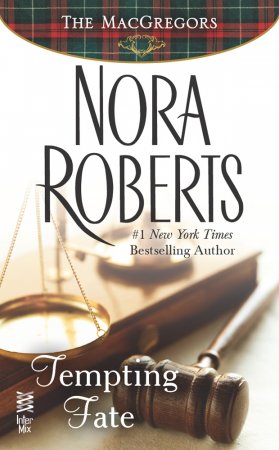 Tempting Fate
Tempting Fate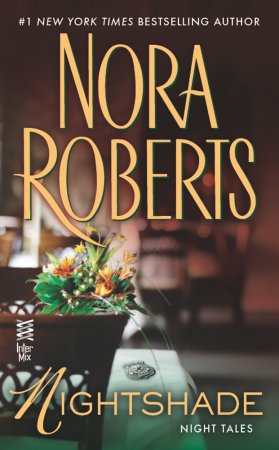 Nightshade
Nightshade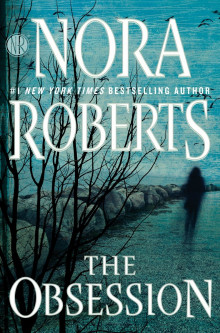 The Obsession
The Obsession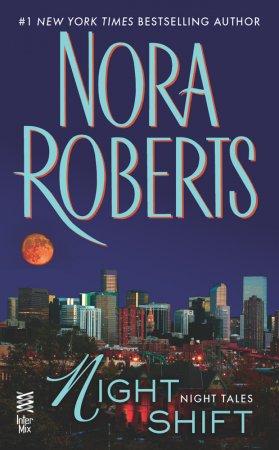 Night Shift
Night Shift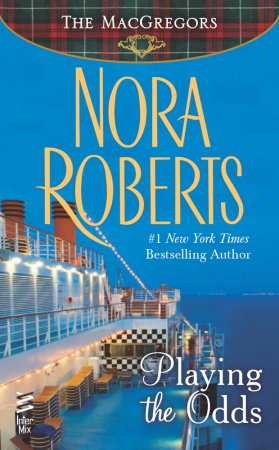 Playing The Odds
Playing The Odds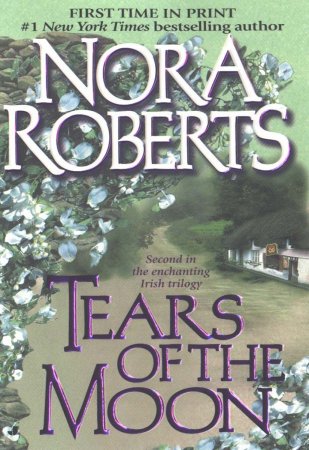 Tears of the Moon
Tears of the Moon One Man's Art
One Man's Art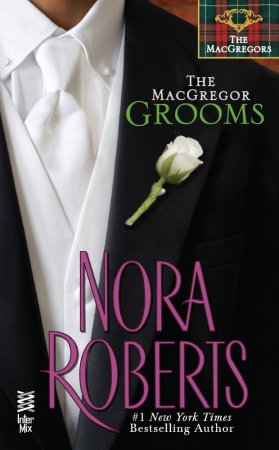 The MacGregor Groom
The MacGregor Groom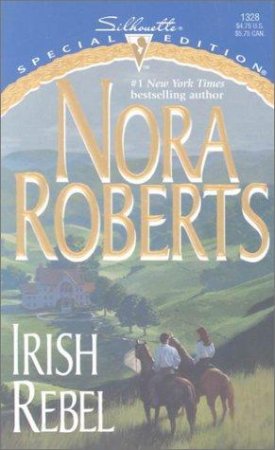 Irish Rebel
Irish Rebel Morrigan's Cross
Morrigan's Cross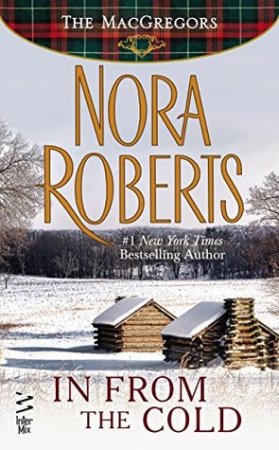 In From The Cold
In From The Cold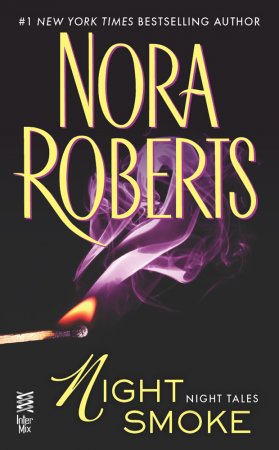 Night Smoke
Night Smoke Finding the Dream
Finding the Dream Red Lily
Red Lily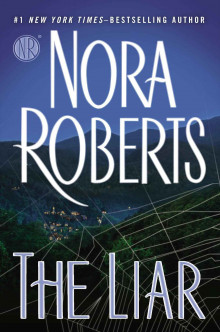 The Liar
The Liar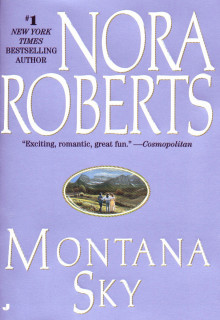 Montana Sky
Montana Sky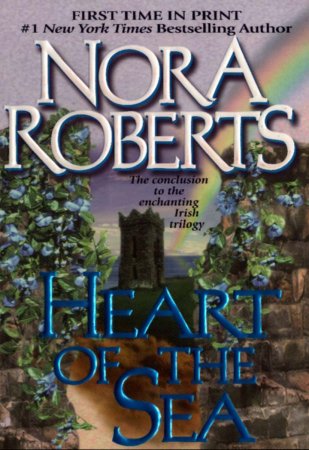 Heart of the Sea
Heart of the Sea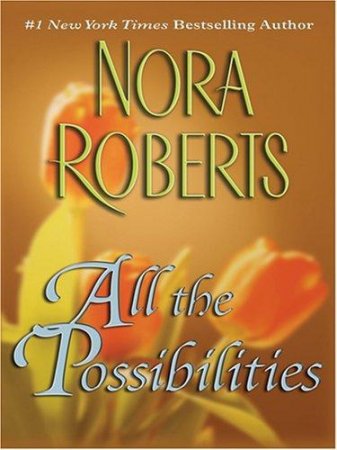 All The Possibilities
All The Possibilities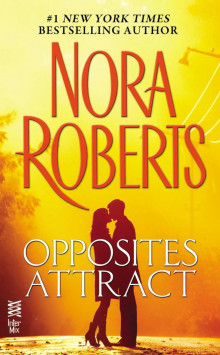 Opposites Attract
Opposites Attract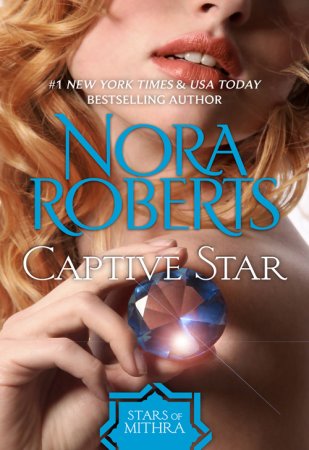 Captive Star
Captive Star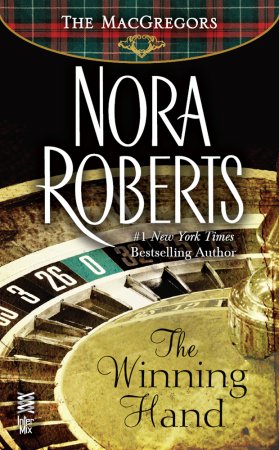 The Winning Hand
The Winning Hand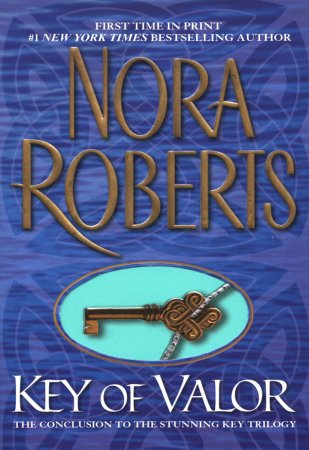 Key of Valor
Key of Valor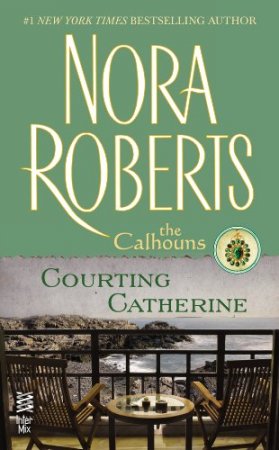 Courting Catherine
Courting Catherine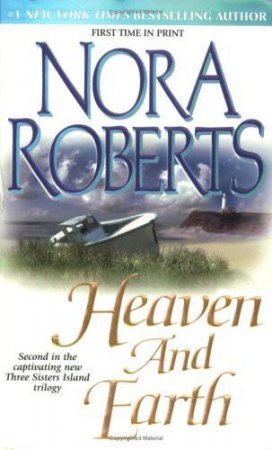 Heaven and Earth
Heaven and Earth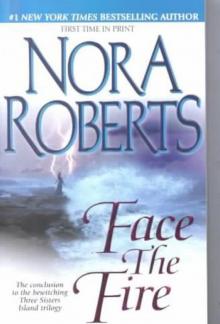 Face the Fire
Face the Fire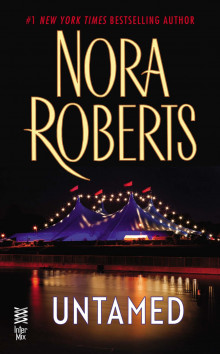 Untamed
Untamed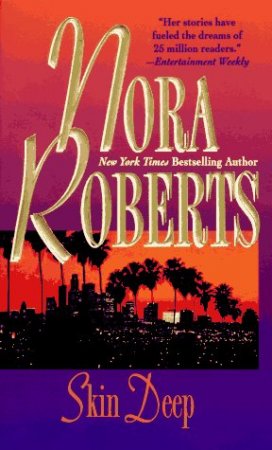 Skin Deep
Skin Deep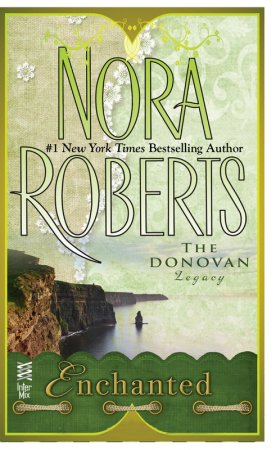 Enchanted
Enchanted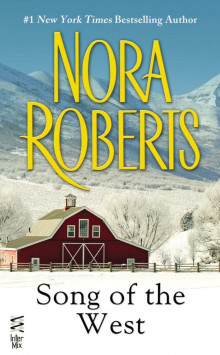 Song of the West
Song of the West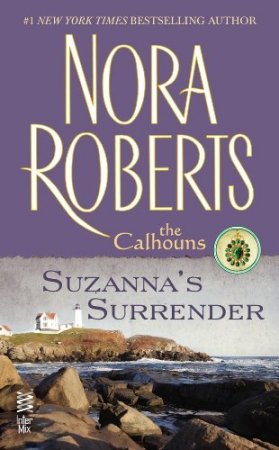 Suzanna's Surrender
Suzanna's Surrender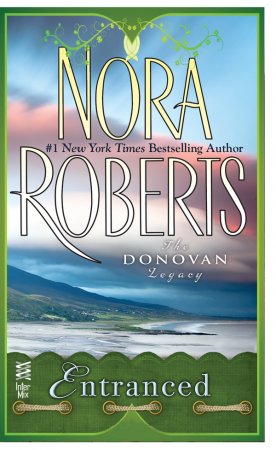 Entranced
Entranced Dance of the Gods
Dance of the Gods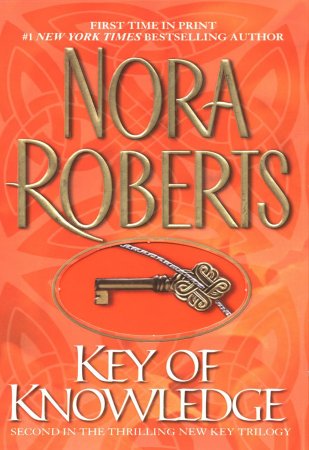 Key of Knowledge
Key of Knowledge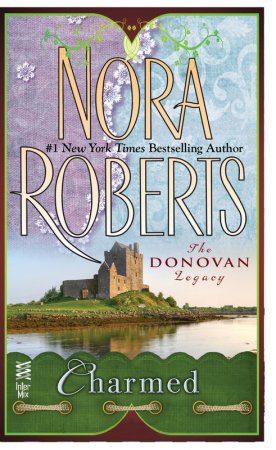 Charmed
Charmed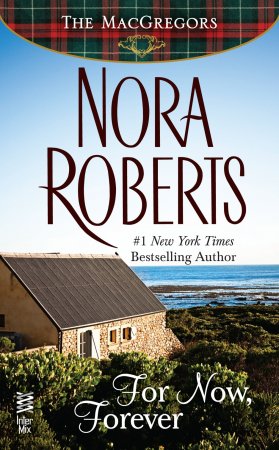 For Now, Forever
For Now, Forever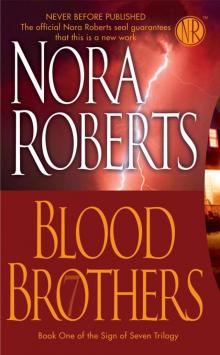 Blood Brothers
Blood Brothers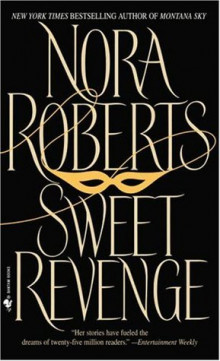 Sweet Revenge
Sweet Revenge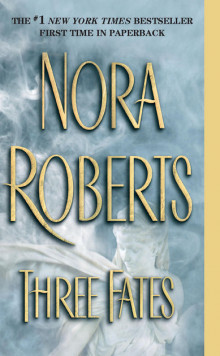 Three Fates
Three Fates Mind Over Matter
Mind Over Matter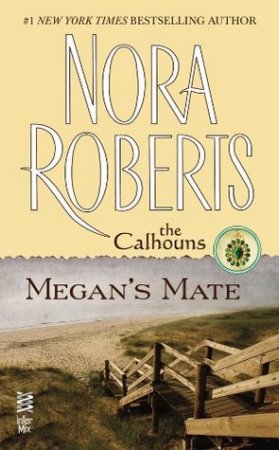 Megan's Mate
Megan's Mate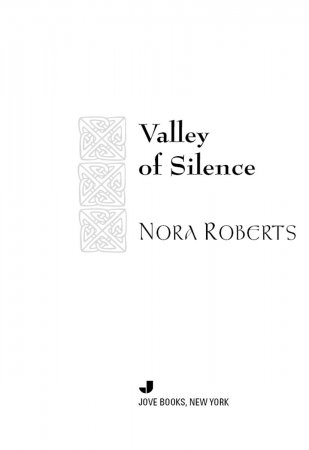 Valley of Silence
Valley of Silence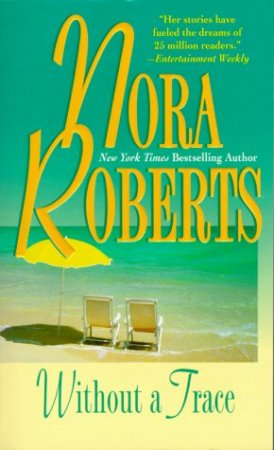 Without A Trace
Without A Trace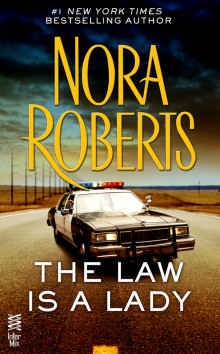 The Law is a Lady
The Law is a Lady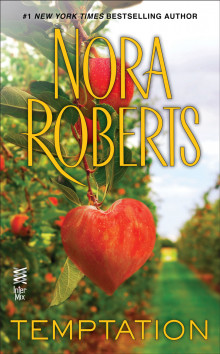 Temptation
Temptation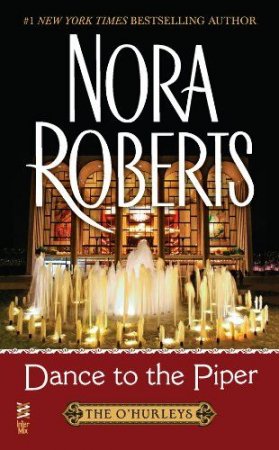 Dance to the Piper
Dance to the Piper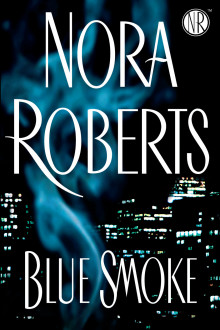 Blue Smoke
Blue Smoke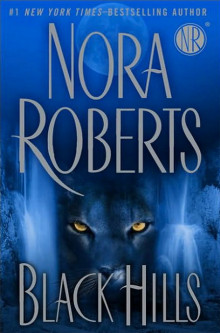 Black Hills
Black Hills The Heart's Victory
The Heart's Victory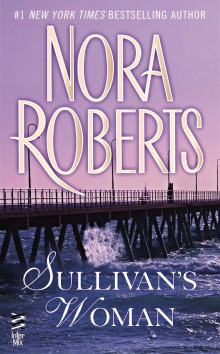 Sullivan's Woman
Sullivan's Woman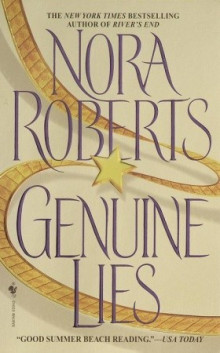 Genuine Lies
Genuine Lies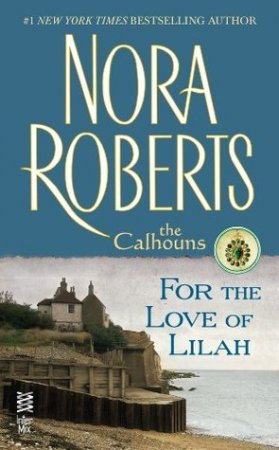 For the Love of Lilah
For the Love of Lilah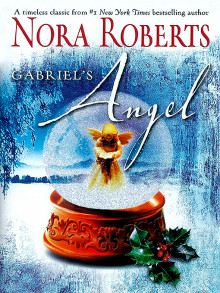 Gabriel's Angel
Gabriel's Angel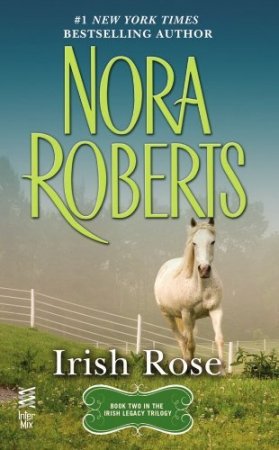 Irish Rose
Irish Rose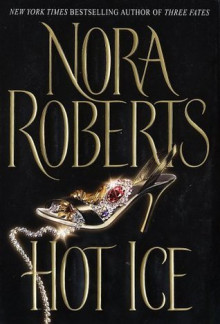 Hot Ice
Hot Ice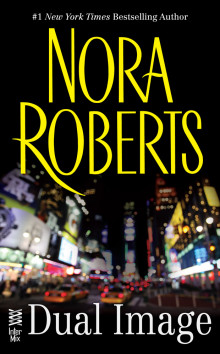 Dual Image
Dual Image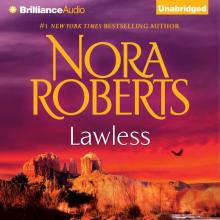 Lawless
Lawless Catch My Heart
Catch My Heart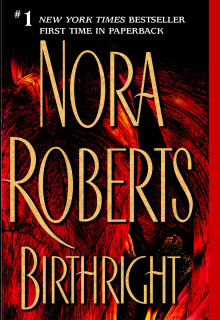 Birthright
Birthright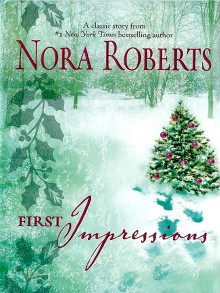 First Impressions
First Impressions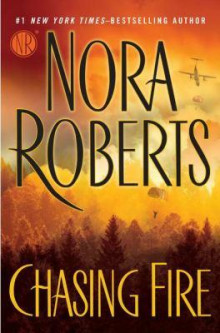 Chasing Fire
Chasing Fire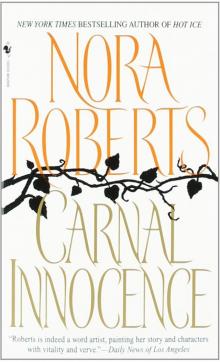 Carnal Innocence
Carnal Innocence Best Laid Plans
Best Laid Plans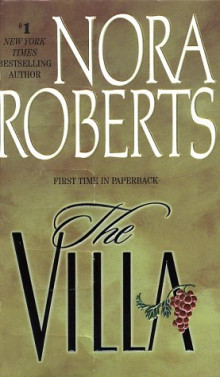 The Villa
The Villa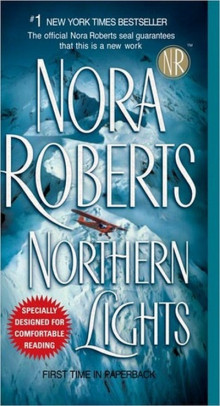 Northern Lights
Northern Lights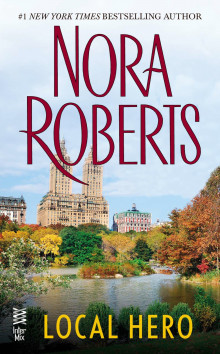 Local Hero
Local Hero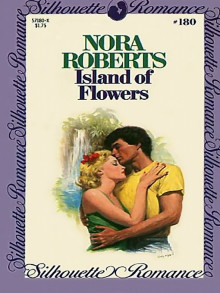 Island of Flowers
Island of Flowers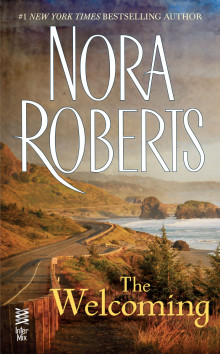 The Welcoming
The Welcoming All I Want for Christmas
All I Want for Christmas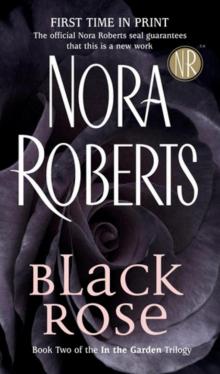 Black Rose
Black Rose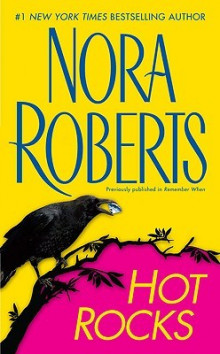 Hot Rocks
Hot Rocks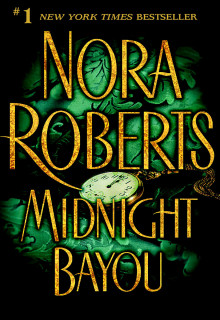 Midnight Bayou
Midnight Bayou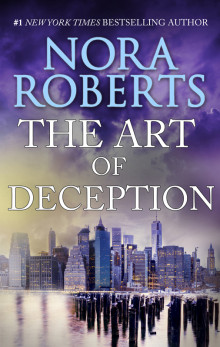 The Art of Deception
The Art of Deception From This Day
From This Day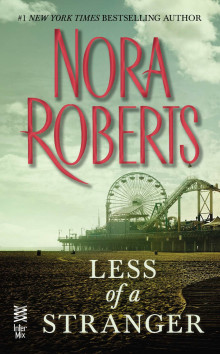 Less of a Stranger
Less of a Stranger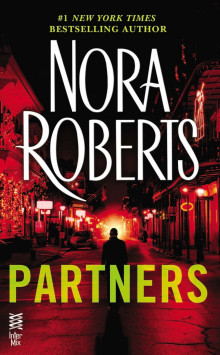 Partners
Partners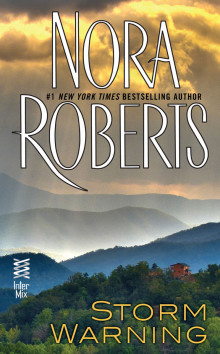 Storm Warning
Storm Warning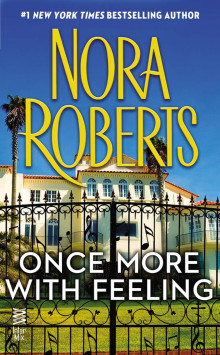 Once More With Feeling
Once More With Feeling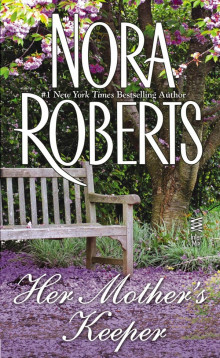 Her Mother's Keeper
Her Mother's Keeper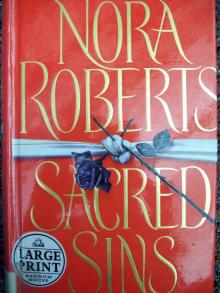 Sacred Sins
Sacred Sins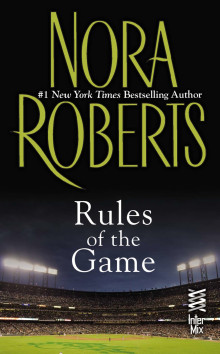 Rules of the Game
Rules of the Game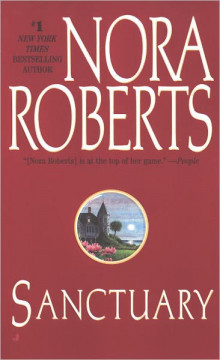 Sanctuary
Sanctuary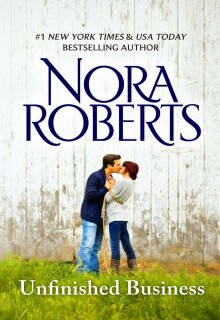 Unfinished Business
Unfinished Business Cordina's Royal Family Collection
Cordina's Royal Family Collection Dangerous Embrace
Dangerous Embrace One Summer
One Summer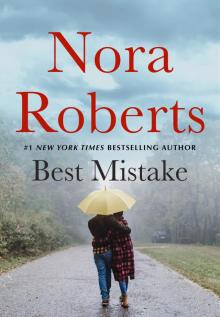 The Best Mistake
The Best Mistake Boundary Lines
Boundary Lines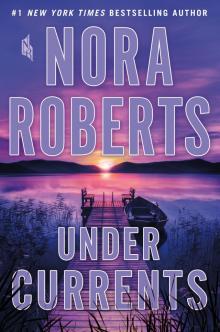 Under Currents
Under Currents The Stanislaski Series Collection, Volume 1
The Stanislaski Series Collection, Volume 1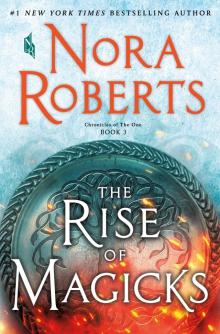 The Rise of Magicks
The Rise of Magicks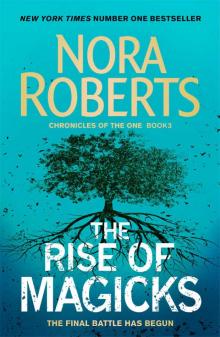 The Rise of Magicks (Chronicles of The One)
The Rise of Magicks (Chronicles of The One)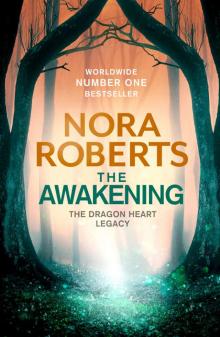 The Awakening: The Dragon Heart Legacy Book 1
The Awakening: The Dragon Heart Legacy Book 1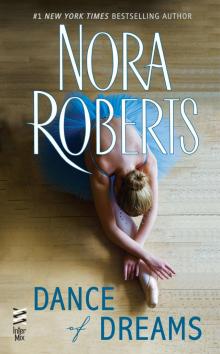 Dance of Dreams
Dance of Dreams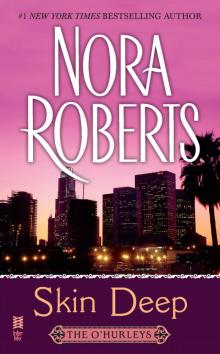 Skin Deep: The O'Hurleys
Skin Deep: The O'Hurleys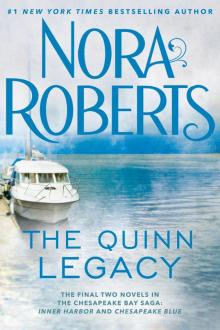 The Quinn Legacy: Inner Harbor ; Chesapeake Blue
The Quinn Legacy: Inner Harbor ; Chesapeake Blue![[Chronicles of the One 03.0] The Rise of Magicks Read online](http://i1.bookreadfree.com/11/chronicles_of_the_one_03_0_the_rise_of_magicks_preview.jpg) [Chronicles of the One 03.0] The Rise of Magicks
[Chronicles of the One 03.0] The Rise of Magicks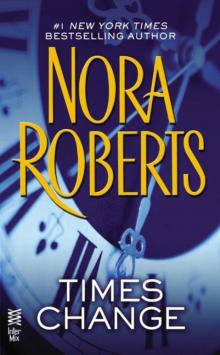 Times Change
Times Change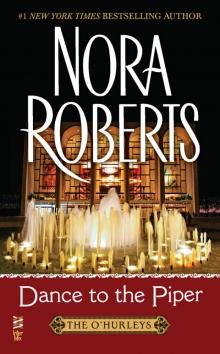 Dance to the Piper: The O'Hurleys
Dance to the Piper: The O'Hurleys Christmas In the Snow: Taming Natasha / Considering Kate
Christmas In the Snow: Taming Natasha / Considering Kate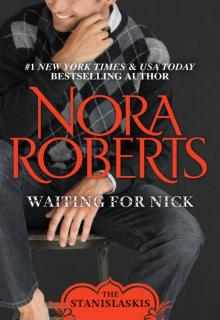 Waiting for Nick
Waiting for Nick Summer Desserts
Summer Desserts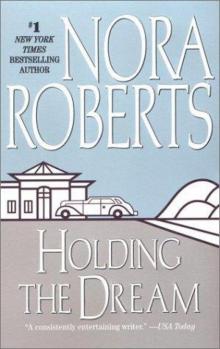 Dream 2 - Holding the Dream
Dream 2 - Holding the Dream The Novels of Nora Roberts, Volume 2
The Novels of Nora Roberts, Volume 2 In the Garden Trilogy
In the Garden Trilogy Eight Classic Nora Roberts Romantic Suspense Novels
Eight Classic Nora Roberts Romantic Suspense Novels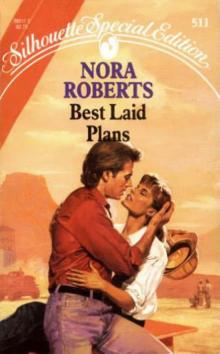 Best Laid Plans jh-2
Best Laid Plans jh-2 From the Heart
From the Heart Holiday Wishes
Holiday Wishes Dream 1 - Daring to Dream
Dream 1 - Daring to Dream Second Nature
Second Nature Summer Pleasures
Summer Pleasures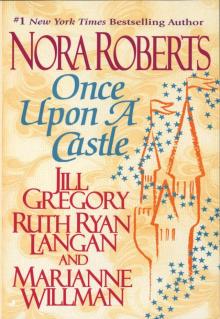 Once Upon a Castle
Once Upon a Castle Stars of Mithra Box Set: Captive StarHidden StarSecret Star
Stars of Mithra Box Set: Captive StarHidden StarSecret Star Impulse
Impulse The Irish Trilogy by Nora Roberts
The Irish Trilogy by Nora Roberts The Pride Of Jared Mackade tmb-2
The Pride Of Jared Mackade tmb-2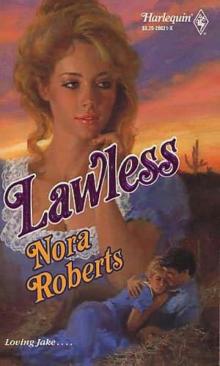 Lawless jh-3
Lawless jh-3 Taming Natasha
Taming Natasha Endless Summer
Endless Summer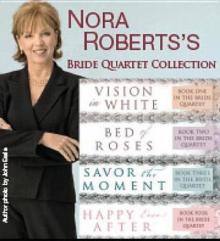 Bride Quartet Collection
Bride Quartet Collection Happy Ever After tbq-4
Happy Ever After tbq-4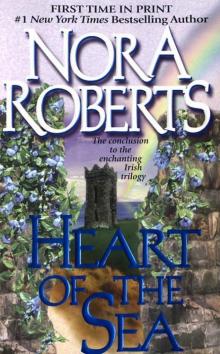 Heart Of The Sea goa-3
Heart Of The Sea goa-3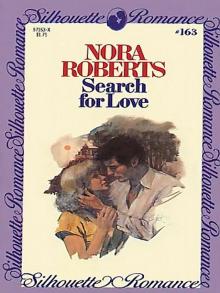 Search for Love
Search for Love Once upon a Dream
Once upon a Dream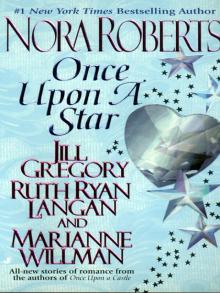 Once Upon a Star
Once Upon a Star Dream Trilogy
Dream Trilogy Risky Business
Risky Business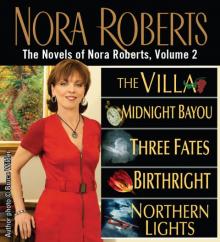 The Novels of Nora Roberts, Volume 3
The Novels of Nora Roberts, Volume 3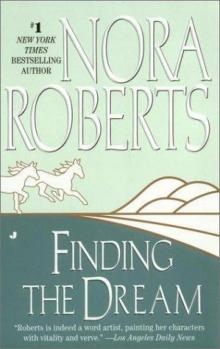 Dream 3 - Finding the Dream
Dream 3 - Finding the Dream Promises in Death id-34
Promises in Death id-34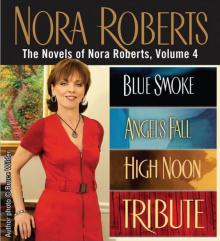 The Novels of Nora Roberts, Volume 4
The Novels of Nora Roberts, Volume 4 The Perfect Hope ib-3
The Perfect Hope ib-3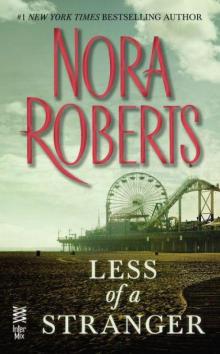 Less than a Stranger
Less than a Stranger Savour the Moment: Now the Big Day Has Finally Arrived, It's Time To...
Savour the Moment: Now the Big Day Has Finally Arrived, It's Time To... Convincing Alex
Convincing Alex Bed of Roses tbq-2
Bed of Roses tbq-2 Savour the Moment tbq-3
Savour the Moment tbq-3 Lessons Learned
Lessons Learned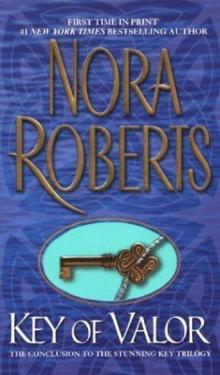 Key Of Valor k-3
Key Of Valor k-3 Red lily gt-3
Red lily gt-3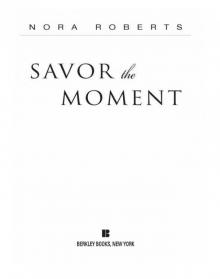 Savor the Moment
Savor the Moment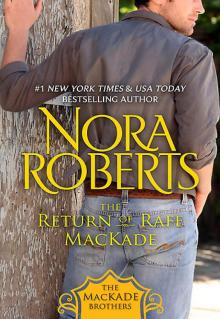 The Return Of Rafe Mackade tmb-1
The Return Of Rafe Mackade tmb-1 For The Love Of Lilah tcw-3
For The Love Of Lilah tcw-3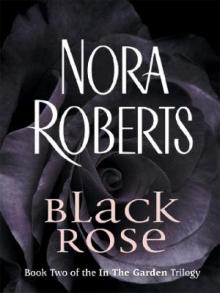 Black Rose gt-2
Black Rose gt-2 Novels: The Law is a Lady
Novels: The Law is a Lady Chesapeake Bay Saga 1-4
Chesapeake Bay Saga 1-4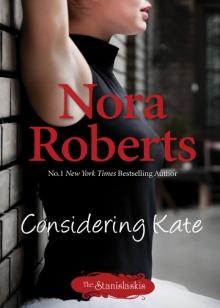 Considering Kate
Considering Kate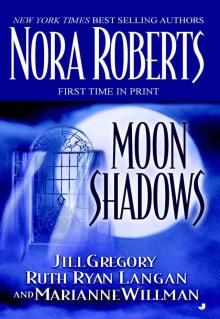 Moon Shadows
Moon Shadows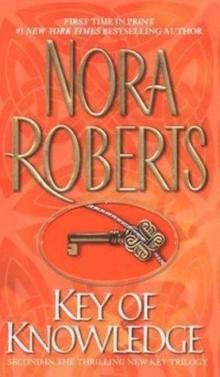 Key of Knowledge k-2
Key of Knowledge k-2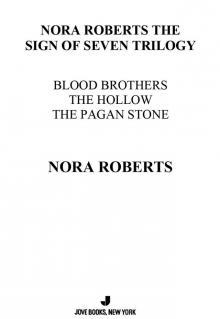 The Sign of Seven Trilogy
The Sign of Seven Trilogy Once Upon a Kiss
Once Upon a Kiss The Novels of Nora Roberts, Volume 5
The Novels of Nora Roberts, Volume 5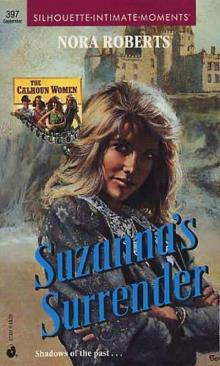 Suzanna's Surrender tcw-4
Suzanna's Surrender tcw-4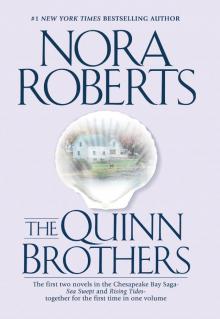 The Quinn Brothers
The Quinn Brothers Falling for Rachel
Falling for Rachel Brazen Virtue
Brazen Virtue Time Was
Time Was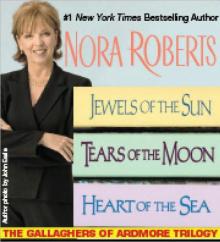 The Gallaghers of Ardmore Trilogy
The Gallaghers of Ardmore Trilogy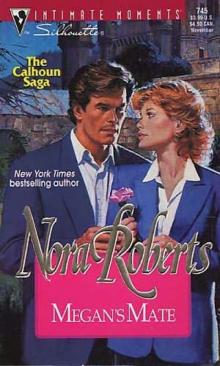 Megan's Mate tcw-5
Megan's Mate tcw-5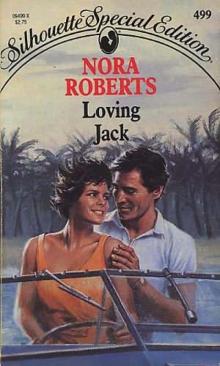 Loving Jack jh-1
Loving Jack jh-1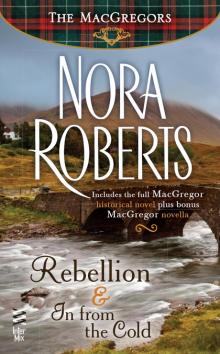 Rebellion & In From The Cold
Rebellion & In From The Cold Blue Dahlia gt-1
Blue Dahlia gt-1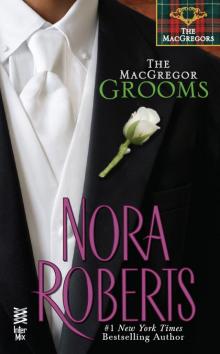 The MacGregor Grooms
The MacGregor Grooms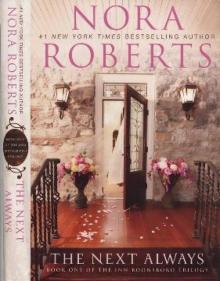 The Next Always tibt-1
The Next Always tibt-1 The Heart Of Devin Mackade tmb-3
The Heart Of Devin Mackade tmb-3 The Novels of Nora Roberts Volume 1
The Novels of Nora Roberts Volume 1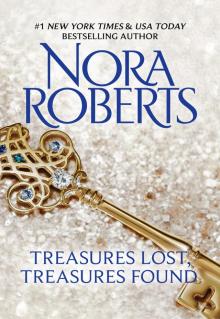 Treasures Lost, Treasures Found
Treasures Lost, Treasures Found Nora Roberts's Circle Trilogy
Nora Roberts's Circle Trilogy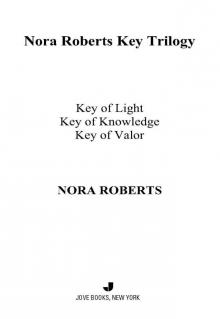 The Key Trilogy
The Key Trilogy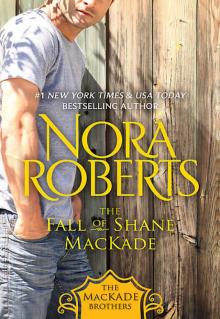 The Fall Of Shane Mackade tmb-4
The Fall Of Shane Mackade tmb-4 A Will And A Way
A Will And A Way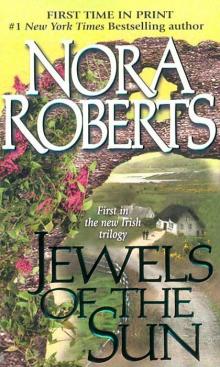 Jewels of the Sun goa-1
Jewels of the Sun goa-1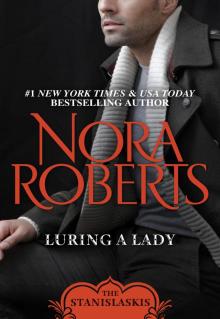 Luring a Lady
Luring a Lady